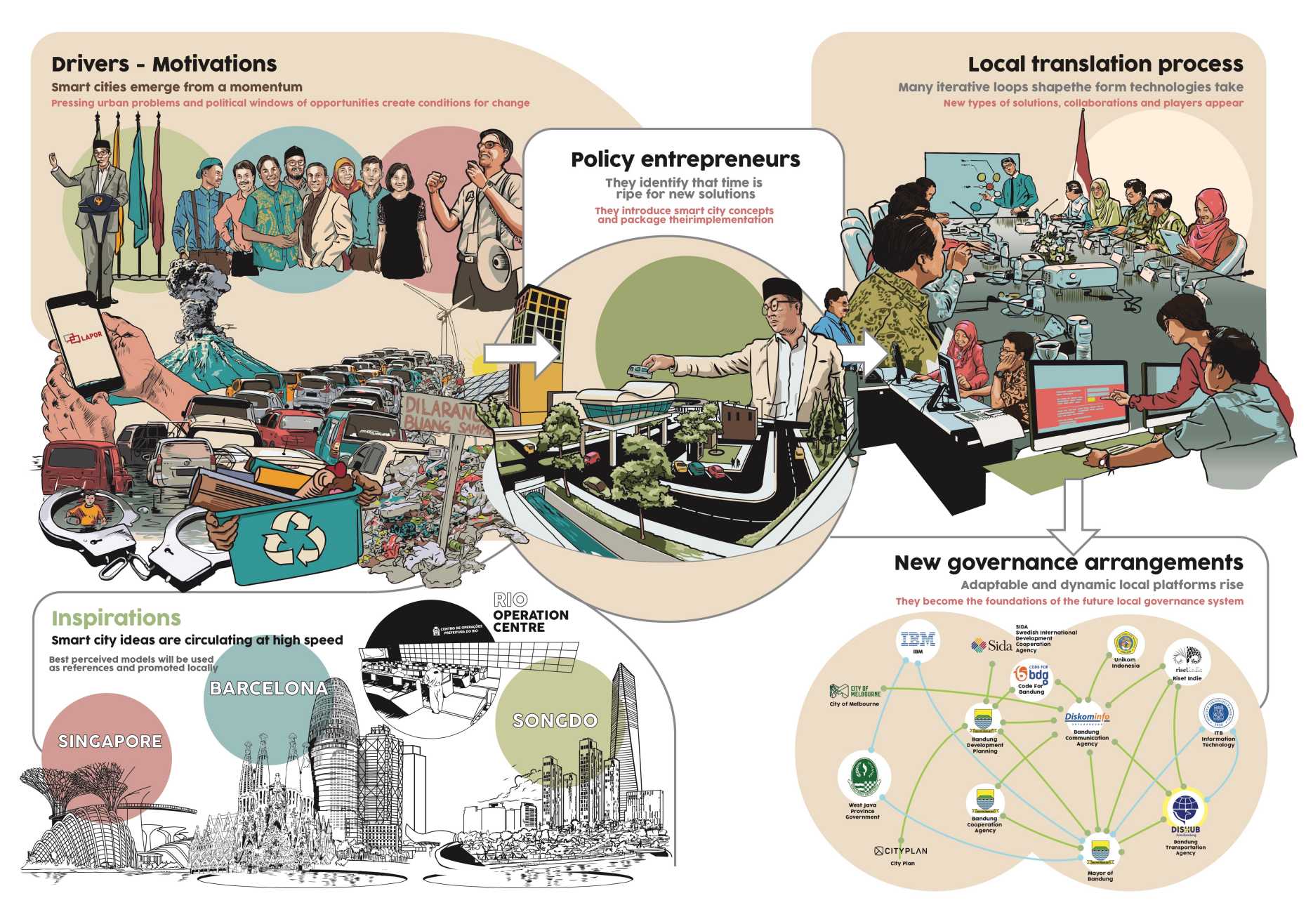5 lessons for smart cities in ASEAN
Are smart cities simple end-to-end technology adoption projects? Researchers from "Translating Smart Cities and Urban Governance in ASEAN" argue that smart cities are instead embedded in local policy processes.

As smart city ideas and solutions spread in Southeast Asia, Fabien Clavier, Dr Devisari Tunas and Thibault Pilsudski from the Translating Smart Cities and Urban Governance in ASEANproject led by the Future Cities Laboratory (FCL) and the NUS-Lee Kuan Yew School of Public Policy, propose to unpack the critical dimensions behind a successful smart city process (five lessons), taking the example of the Bandung Smart City. Bandung is the third biggest city in Indonesia, has been at the forefront of the smart city movement in Southeast Asia, and is praised by its peers both domestically and internationally.
The five lessons they propose for a smart city to take off are:
- At the right time with the right agenda;
- Draw on existing solutions and connect to international networks;
- Identify your policy entrepreneurs and develop a smart city blueprint;
- Engage with local partners and work on the translation of your smart city;
- Develop conducive governance arrangements.
The authors of the article postulate that smart cities are not simple end-to-end technology adoption projects but are embedded in the local policy processes, instead. Local leaders play a central role in developing smart cities and guiding the translation of international solutions to local contexts. As many cities in Southeast Asia are eager to embark on digitalisation and urban transformation projects, it is vital to support them in understanding the opportunities and pitfalls regarding smart city projects.
For more details, read the article "external page 5 lessons for smart cities in ASEAN: The example of Bandung, Indonesia" published on the United Nations Development Programmes's (UNDP) external page Global Centre for Technology, Innovation and Sustainable Development website.